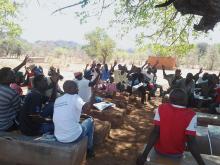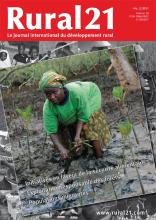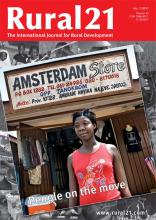Land Library
Welcome to the Land Portal Library. Explore our vast collection of open-access resources (over 74,000) including reports, journal articles, research papers, peer-reviewed publications, legal documents, videos and much more.
/ library resources
Showing items 1 through 9 of 14.The USAID's Investor Survey on Land Rights aimed to provide a more systematic understanding of the drivers of tenure risk to land-based investments from the perspective of the private sector, and of how investors and operators assess, mitigate and are affected by such risks.
Indigenous Peoples and local communities hold a large share of the world’s land area under customary systems. However, there is a tremendous gap between what is held by communities in practice and what is formally recognised by governments.
Marked power imbalances often result in communities losing out in use conflicts over their territories and resources. This applies in particular to extractive industries and infrastructure projects.
This guide discusses USAID’s recommendations for best practices related to the due diligence and structuring of land-based investments, with the goal of reducing risks and facilitating responsible projects that benefit both the private sector and local communities.
Providing extension and advisory services is expensive. There are salaries to be paid, transportation and operational funds to be provided, buildings to be rented or built, demonstration plots to maintain, and continued education to be offered to the extension staff.
This report synthesizes the findings from field research on land and natural resource tenure in 11 administrative clan units (henceforth referred to as „clans‟) in Liberia, including Ding, Dobli, Gbanshay, Little Kola, Mana, Motor Road, Saykleken, Tengia, Upper Workor, Ylan, and the community of
L’urbanisation est souvent considérée comme ayant des effets néfastes sur le développement rural. En fait, c’est tout le contraire.
The sheer number of refugees from Zimbabwe puts a heavy burden on the province of Limpopo in South Africa. These new arrivals strain the already weak structure of the local labour market. The result is frustration and bitterness for local people.
As part of its commitment to local community development in Mozambique, the Community Land initiative (iTC), a project financed by a group of European donors, is supporting part of a honey production chain in Mozambique, specifically in Sussundenga district, Manica province.







